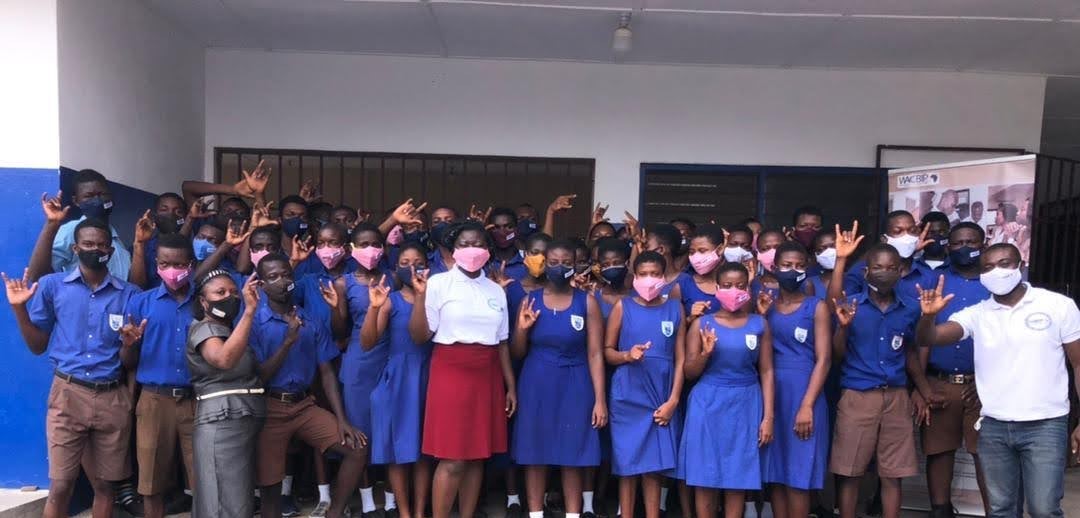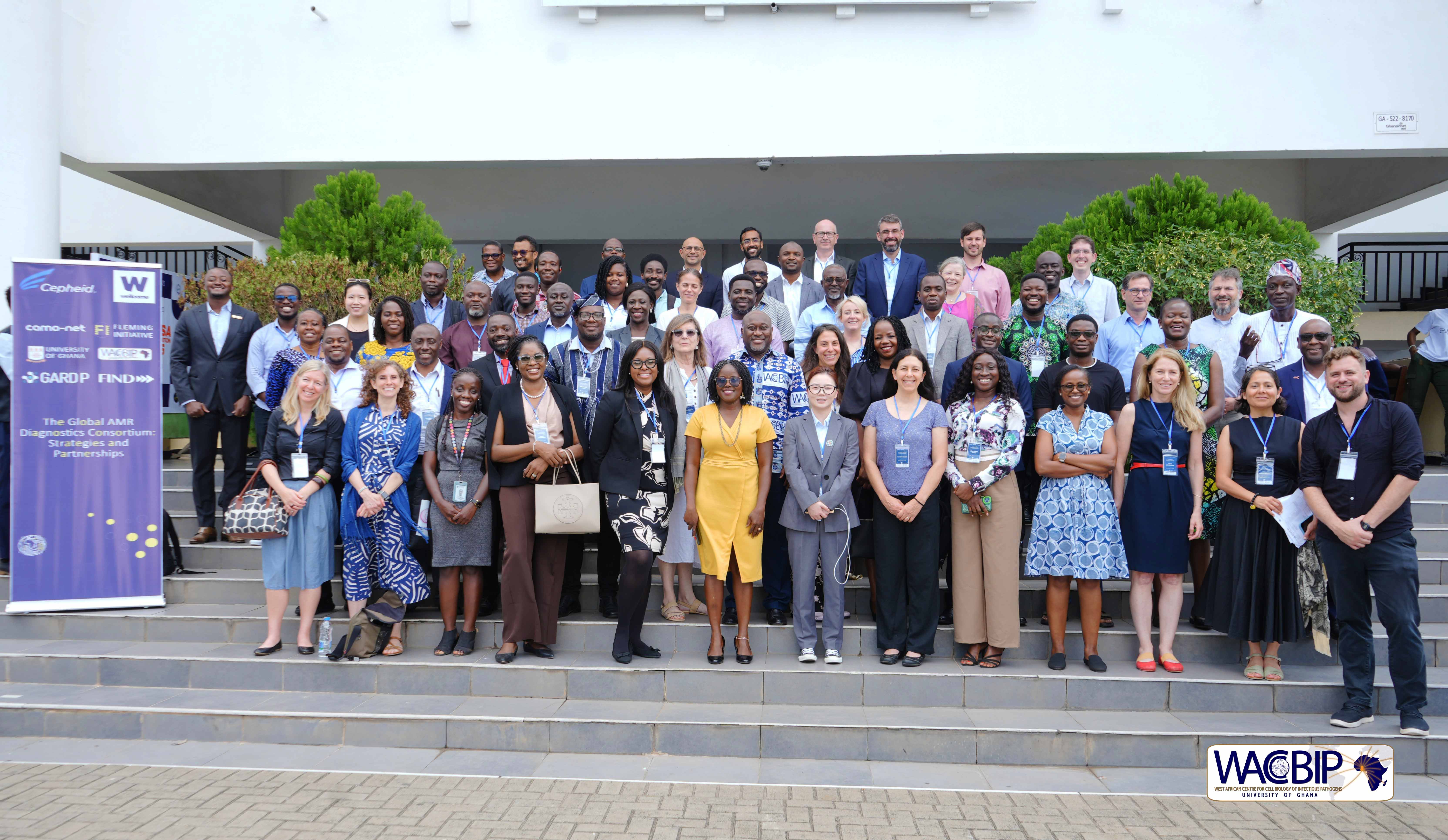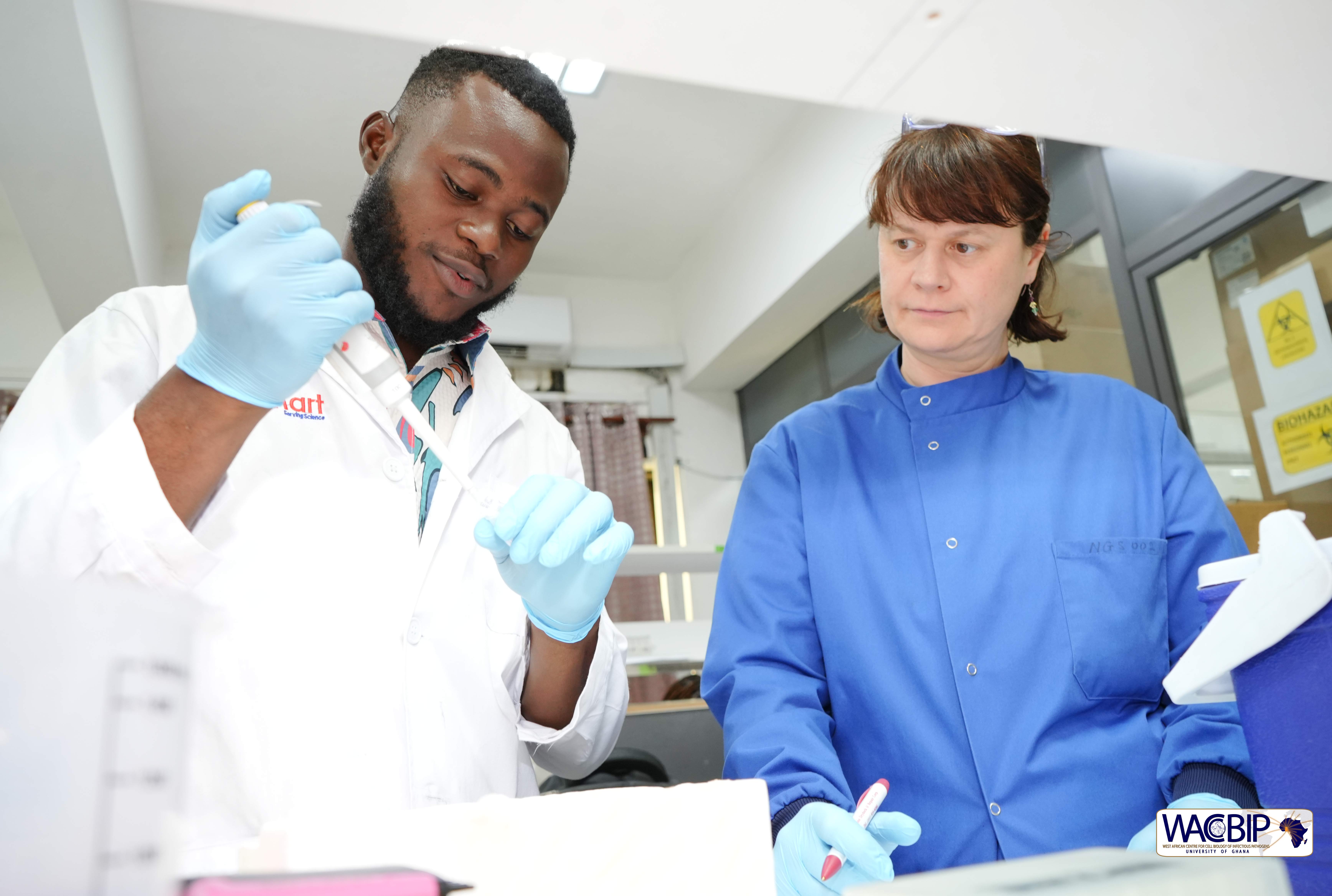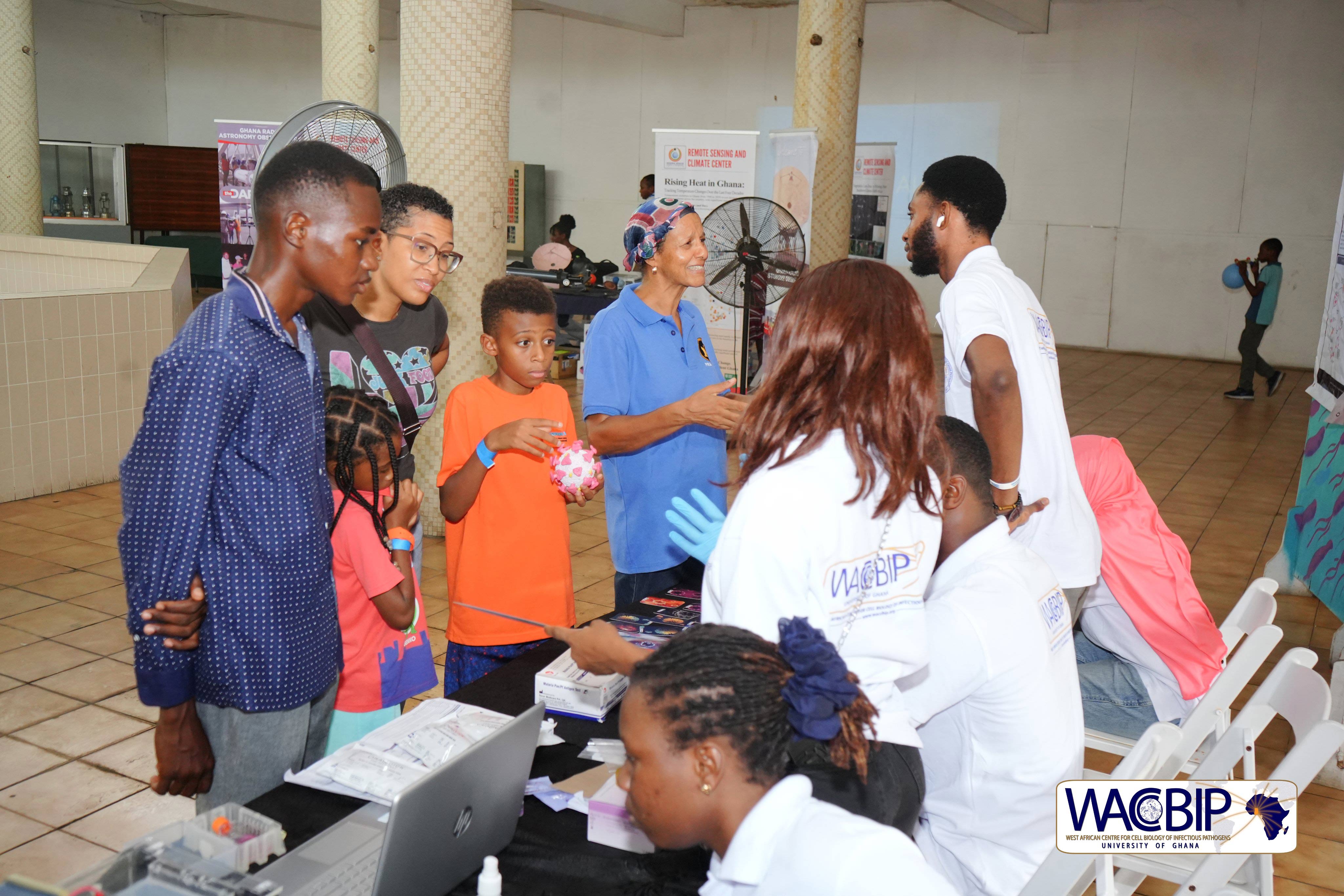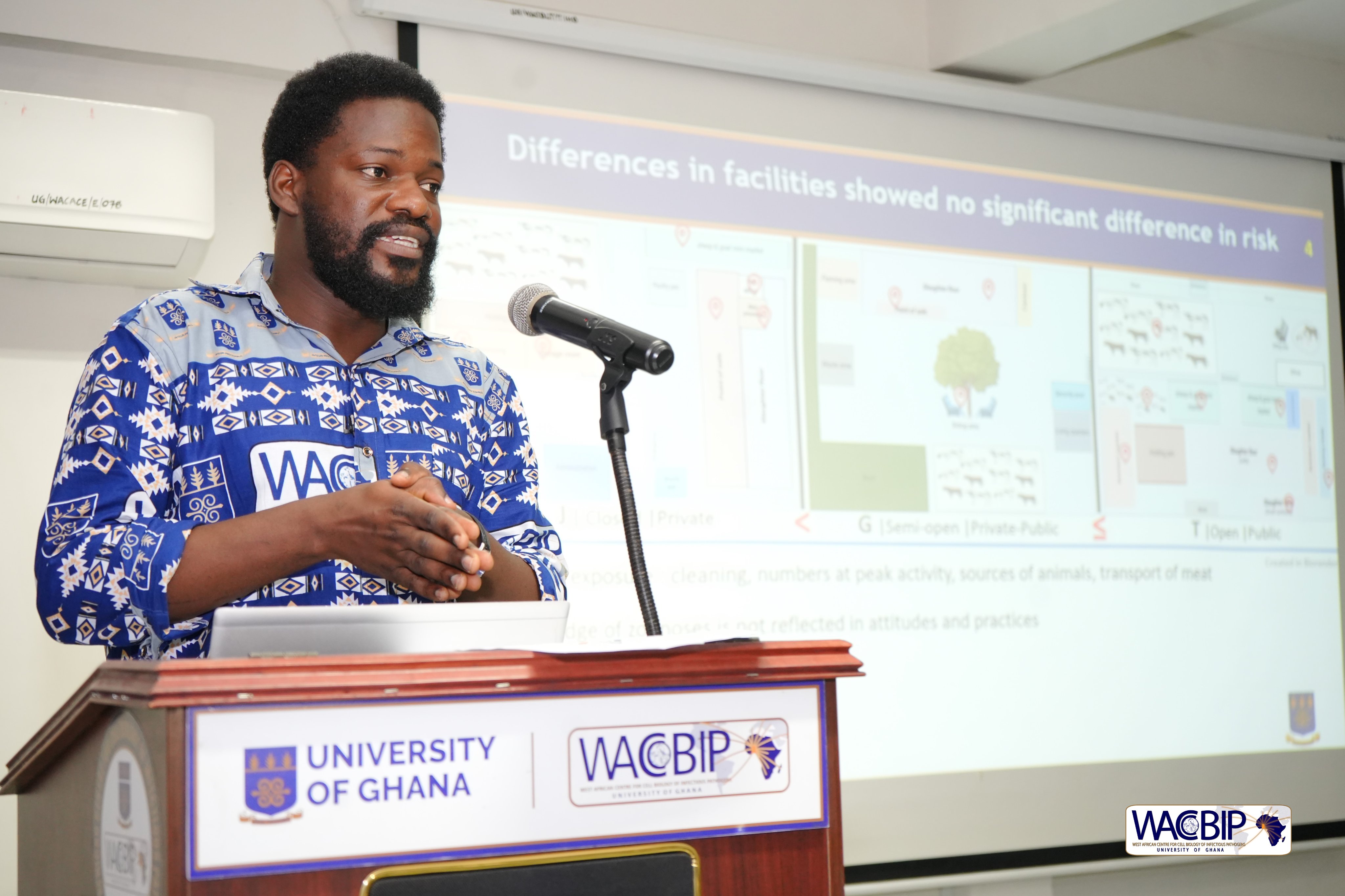The West African Centre for Cell Biology of Infectious Pathogens (WACCBIP), has piloted a science communication toolkit in the form of a docu-drama as part of its public engagement activity for strengthening genetics research at the Tetteh Ocloo State School for the Deaf located at Adjei Kojo in the Tema West Constituency of the Greater Accra region.
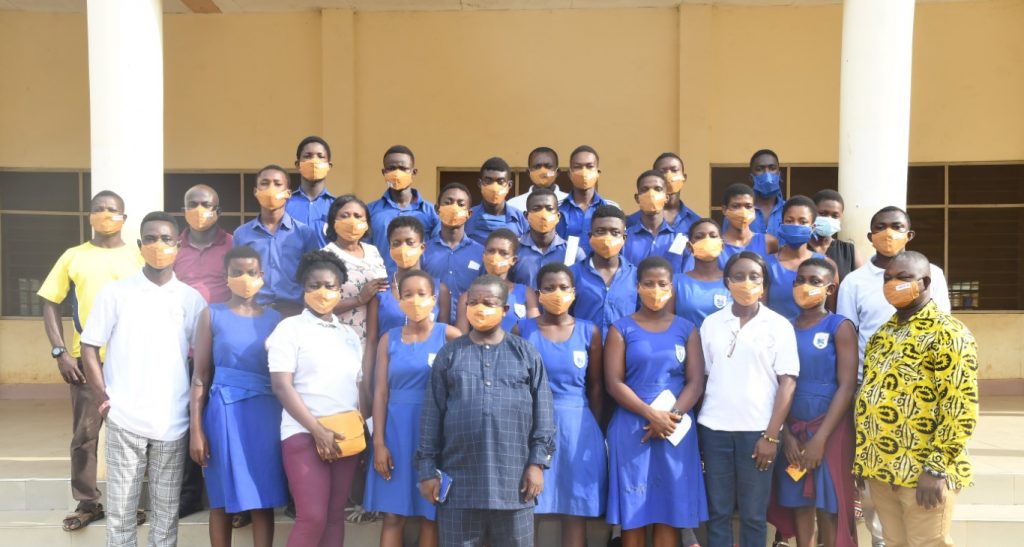
The public engagement team in a picture with students and teachers[/caption]
This project, which is funded by the Wellcome Trust, seeks to bring together deaf students, their families and WACCBIP researchers to develop a toolkit to promote genetic research related to hearing impairment.
With performances by the Abibigromma Dance Company of the School of Performing Arts, University of Ghana, WACCBIP has produced two versions of a 25-minute science docu-drama titled, 'A Smile of Hope'. The first version, which uses only sign language will be used by WACCBIP researchers to primarily communicate to deaf audience about the science behind genetics related hearing impairment. The second targets an audience without any form of hearing impairment such as family members of deaf persons as well as other members in their communities.
Professor Gordon Awandare-Director of WACCBIP spoke about the relevance of the project. He was excited that the docu-dama was being piloted to help the deaf community and their families understand the need for genetics research into deafness. He said the lack of such a toolkit makes it challenging for researchers to engage family members.
“Yes, we are very thrilled to have reached this point, to actually see the impact of the docu-drama and how effective it has been helping us engage with communities. We are excited to continue to engage with other groups.”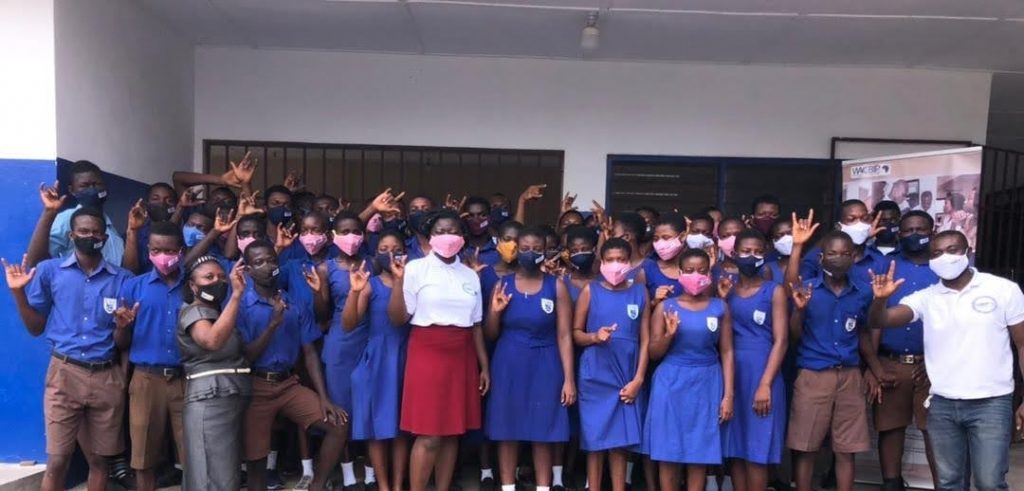
Highlighting the importance of the docu-drama to students, their families, and teachers, Miss Kyerewaa Boateng, Public Engagement Officer of WACCBIP, said that WACCBIP researchers continue to explore various ways to engage communities on the genetics of deafness, and one of such ways is through docu-dramas.
“Engaging communities to understand the research we conduct has been a priority. Deafness in most communities is a sensitive topic and we noticed that our researchers face challenges in recruiting students with hearing impairment, their families, and communities for genetics research due to the lack of understanding in genetics research into deafness. Up till now, people believe deafness is a curse and such superstitious beliefs thrive in most communities. We want families to understand the conditions of their deaf children.''
Explaining the design of the docu-drama, Miss Boateng said that it focuses on the perspectives of deaf people and explains the genetics of deafness in simple languages.
“The docu-drama is easy to understand. Families with deaf children can relate to the story as in-depth engagement was done with families, communities, and stakeholders before scripts were developed,” she said. She went on to add that “We believe that the toolkit is transformative because it widens the participation of deaf people in science communication research.”
Mr. Elvis Aboagye, a fellow with WACCBIP and a member of the engagement team said it is important for families to have a solid understanding of genetics investigations to help demystify the barriers posed by traditional, cultural, and religious perception on voluntarily giving blood samples.
[caption id="attachment_6615" align="aligncenter" width="1024"]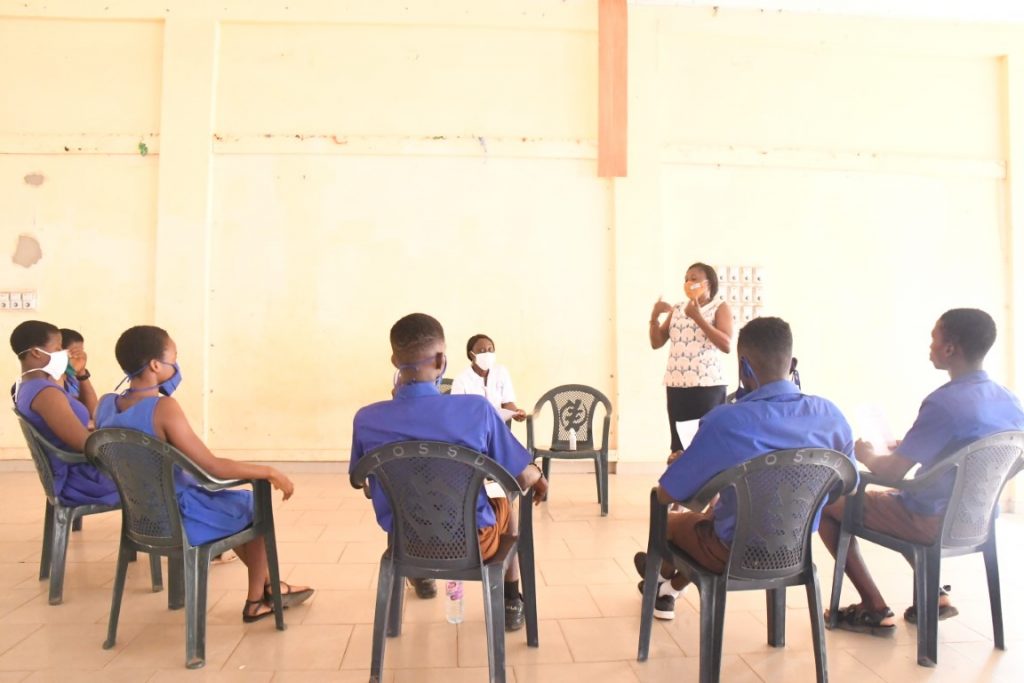
Teachers and students partake in a focus group discussion on the docu-drama[/caption]
“The docu-drama is the first of its kind. It will help educate people on the causes of heritable and rare genetic conditions and will help in fighting stigmatization among many challenges faced by affected families and persons in the country.”
Some parents were enthused after viewing the docu-drama. They understood the genetics of deafness and prayed that the docu-drama will be shown in communities across the country.
Madam Rose Annan said she could relate to the plight of the parents in the scenes of the docu-drama.
“When the parents of the deaf child went to the native doctor and prophetess for solutions, I saw my story being told. I have really gone places for spiritual consultation with my child. This is because she was not born with the condition, so l was very disturbed,” she said. “I believe that this video must be shown to churches and aired on radio stations, and everywhere.”
Another parent also agreed to participate willingly whenever she is called to partake in genetics research.
'The video taught me that there are many things that blood taken for research purposes] can be used for. Not anything bad targeting my child. So, when l am called for something like this, l will come over.”
[caption id="attachment_6614" align="aligncenter" width="1024"]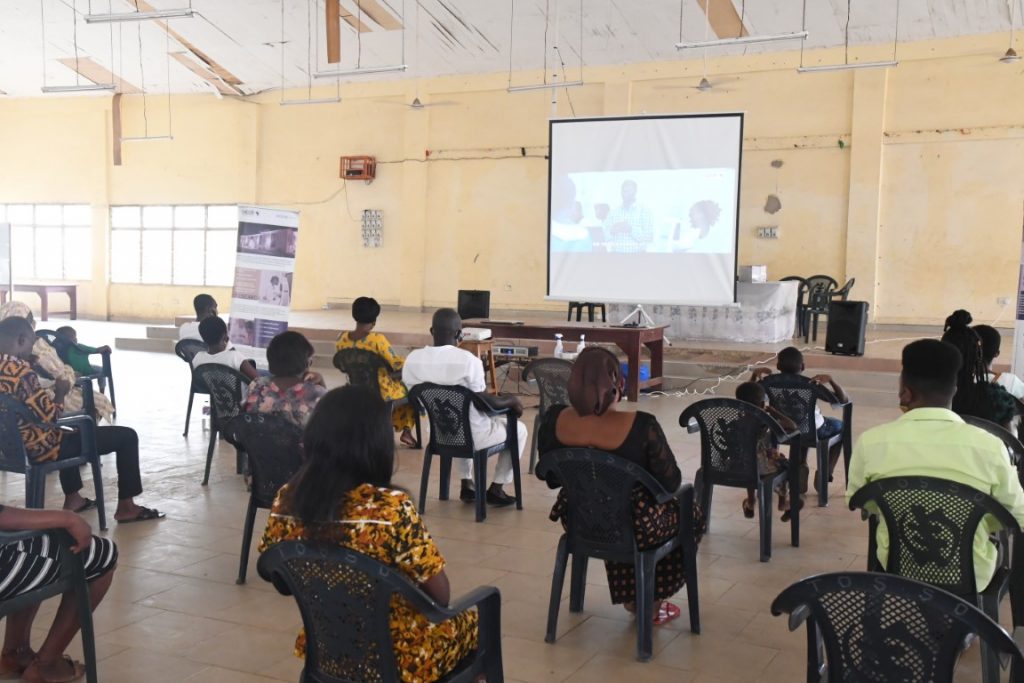
Families of the students watch the 25-minutes docu-drama.[/caption]
A student explained that she understood what she viewed in the docu-drama.
“Initially, I didn't understand my condition, but now I understand that my condition is of no fault of my parents,” she said. “I am not cursed, but it is something from the blood. I can now get the necessary help.”
[caption id="attachment_6616" align="aligncenter" width="1024"]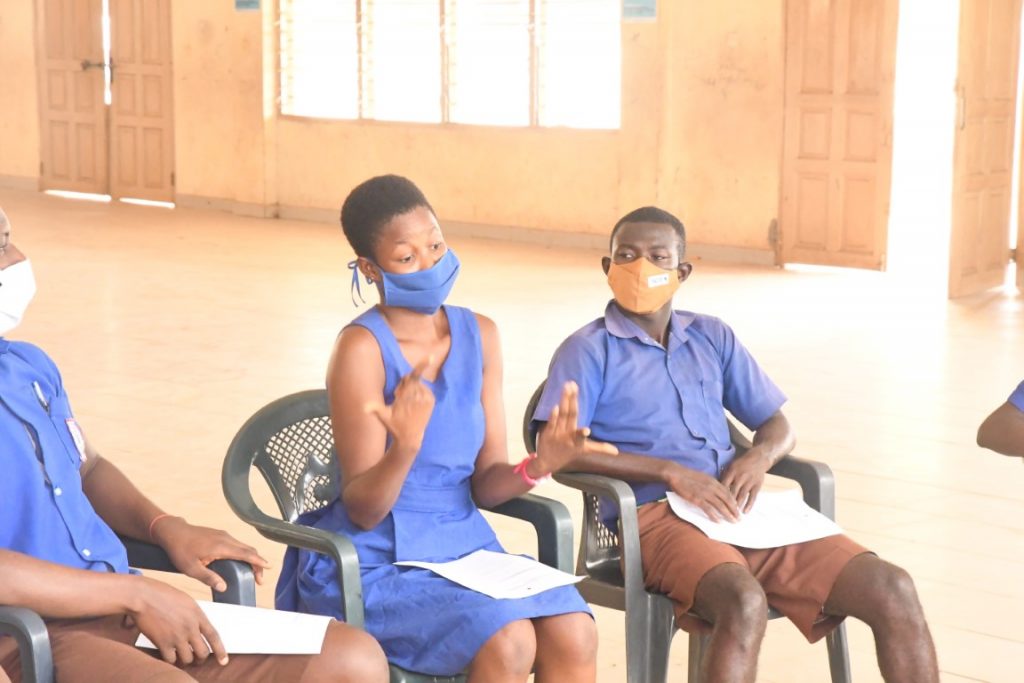
Some students interact with the engagement team.[/caption]

